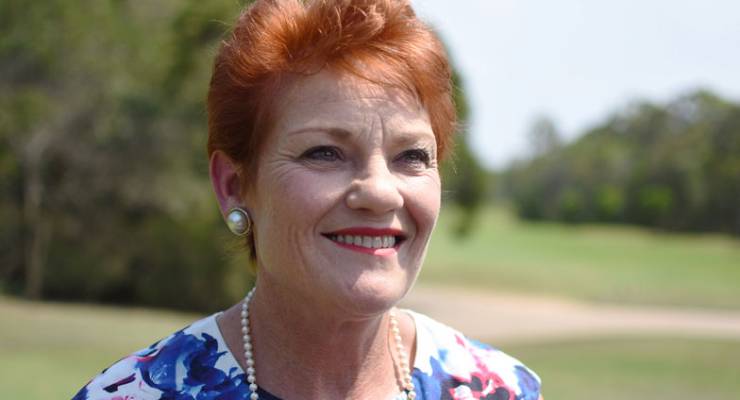
For the substantial share of the Australian population that yearns to see the cosy major party duopoly torn apart by crusading populist outsiders, WA Senator Rod Culleton’s resignation from Pauline Hanson’s One Nation overnight has a disappointingly familiar ring to it.
Barely six months have elapsed since the party’s stunning comeback at the double dissolution election on July 2 — almost exactly as long as it took the Palmer United Party to fragment after its breakthrough in September 2013, and for the first crack to appear in the One Nation edifice after it won 11 seats in Queensland in 1998.
It should perhaps not come as a surprise that ambitious new political concerns, each faced with the task of recruiting battle-ready candidates from the political margins with none of the organisational stress-testing that the major parties have accumulated through decades of hard experience, should keep running into the same sorts of problems.
Even the seemingly meticulous Nick Xenophon, whose new party has enjoyed a largely incident-free six months since it landed four seats in the federal Parliament, had earlier proved unable to maintain cordial relations with Ann Bressington, the terminally flaky running mate elected on his coattails to the South Australian state Parliament in 2006.
At this stage though, there’s very little sense that the Culleton fiasco foreshadows a march down the path to political irrelevance that was earlier followed by the PUP and the earlier incarnation of One Nation.
Writing in The Saturday Paper on the weekend, Karen Middleton related that Hanson’s second act was finding appreciative audiences well beyond the Queensland heartland, with Coalition figures holding out little hope that the genie might be returned to the bottle.
Similarly, Trent Dalton of The Australian was not found wanting for material when he trekked to Gympie for a Donald Trump and Pauline Hanson-inspired account of the bleakness of life in Australia’s flyover regions, and the resentment that simmers there against all things globalist, metropolitan and politically correct.
Even opinion polls, with their noted record of underestimating populist sentiment internationally, are consistently indicating that Hanson’s supporters have been little troubled by her party’s internal problems.
The Essential Research survey of federal voting intention has recorded an upward trajectory in the party’s support, from 5% in the wake of the election to 7% and 8% in its last two polls.
With a state election to be held on March 11, reports from Western Australia suggest One Nation is outpolling the Greens in Perth, to say nothing of the regional areas where its support has traditionally been strongest.
Even the liberal stronghold of Victoria, where One Nation polled less than 4% at its previous high-water mark in 1998, has recently turned up a poll result showing support for the party just shy of double figures.
This stands in stark contrast to the experience of the Palmer United Party, whose poll numbers peaked at around 6.5% when the senators elected in September 2013 took their seats in the middle of 2014, but had fallen below 3% by the time Senator Jacqui Lambie walked out of the party the following November, and progressively diminished to nothing from that point on.
Palmer’s loud-mouthed, high-budget campaign in 2013 was effective in lodging him in the public mind as the election’s prevailing none-of-the-above candidate, with support concentrated in the depressed regional areas and the low-rent big city fringes that have consistently proved most receptive to Hanson.
However, Palmer’s credibility as a people’s champion was undermined when his business interests hit the sharp end of the resource industry downturn, and his political agenda proved fatally lacking in the new populism’s crucial active ingredient of xenophobia.
This connection to the grievances of voters with little faith in the power of the electoral process to effect meaningful change in their lives lends Hanson a durability that no amount of campaign spending could ever have bought for Palmer.
It should also spare her from any lasting electoral damage from the defection of Rod Culleton, however much of a blow it may be to her party’s leverage in the Senate.








When Hanson first came to Canberra she was raw. This time she is at least half baked!
The real laugh is that many One Nation supporters are reported to be struggling working class people … what policies does One Nation propose in order to help them … getting tough and xenophobic about Muslims … ??? …
Something like that.
A red haired canary in the political coalmine?